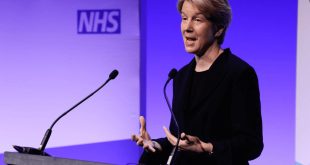Industry strategic consultancy Regulus Partners kick starts the week by assessing the global changes to taxes, the Australian government’s crackdown on credit cards, and the recent NHS statistics released in the UK.
Global: gambling tax changes – call of duty
This week has seen three elements of ‘bad news’ from a tax perspective. Denmark (€520m run-rate online market) has announced that it will increase online duty by 8ppts (40%) to 28% in 2021, to go some way to normalise the rate with landbased. Brazil has opted to maintain a 3% turnover duty rather than a proposed 1% of turnover for its forthcoming domestically regulated betting market. In a smaller market, but with a bigger impact for those concerned, tax increases in Lithuania (by 3ppts to 18% for retail and 13% for online) have caused Olympic Entertainment to close nine betting shops (6 of national supply) and two casinos (11%).
On the one hand, it is hard not to sympathise with the reaction of the Olympic MD for Lithuania and apply it across the board: “Initiatives to aggressively change the tax environment not only create uncertainty but have also forced us to rethink and change our business model. We will move the activity from the closed facilities to other operating units, such as betting shops, casinos or the remote gambling platform.
This is how we respond to changing market conditions so that we can ensure the sustainability of our business through legal action.” Higher taxes makes it harder to make money (in theory – bear with us on that) while ‘aggressive’ changes can certainly detrimentally affect business models. But if we examine each of these markets in turn, a more nuanced view can emerge.
When Denmark domestically regulated online gambling in 2011 the government had to face down a state aid legal challenge from domestic retail operators for providing online with a far more favourable rate of tax (Denmark’s casinos and gaming machine face taxes of 41- 75% GGR – online is paying less than half of this). Denmark’s logic was simple: the benefits of ‘liberalisation’ outweighed the issues of differential tax treatment, while there was sufficient precedent (e.g. UK) – the European Commission agreed. However, two things then occurred.
The first was rapid channel shift, with overall market growth of 58% since 2012 (ex lottery) but 189% online – retail overall grew by only 31% (all betting as operators competed against the erstwhile monopoly) while casinos have been flat (no new supply or demand) and gaming machines have declined (by 21% since 2012). The second was a very rapid growth in online advertising – with Kantar reporting that radio and TV ads has more than doubled since 2012 (triggering voluntary restrictions and calls for tighter regulation – as in many other jurisdictions). So who has won from liberalisation? – online gambling operators and media companies. Who has lost? – landbased gaming operators and the treasury.
Further, given that Denmark’s rate of VAT is 25% (20% cash), growth in online gambling is tax neutral beyond the (very important) element of channelling from the black market, but a fiscal problem for channelling from landbased to online. While a 28% tax rate might squeeze some operators, it is unlikely to have a material impact on consumer choice (the number of high or at least reasonable quality licensees available) and therefore channelization, in our view. Equally, the vast majority of marketing spend tends to be focussed on market share rather than growing the market.
Consequently, higher taxes tend simply to drive lower marketing spend and higher operating efficiencies (e.g. UK growth and channelling was completely unaffected by adding a 15% duty where before there was none – despite baleful industry predictions and ‘analysis’ to the contrary). A 40% tax hike, however aggressive it may sound, therefore kills a few birds with one stone: cutting advertising, levelling the playing field a little (after all retail operators tend to employ more people per € of revenue generated and are still subject to roughly double the rate of tax) and making the treasury a net beneficiary of online gambling growth away from other forms of consumer expenditure. These elements might have just made the Danish market more sustainable – remote operator cries for politicians to ‘come to their senses’, notwithstanding.
Brazil’s position has less compelling outcomes for similar input logic. A 1% turnover tax would have been among the lowest in the world – Ireland doubled its tax rate to 2% last year. On a 10% blended GM, Brazil is suggesting a 30% equivalent GGR tax vs. 10%: the former gives the state a more significant but still sustainable level of skin in the game and makes growth beyond black market channelling attractive (Brazil’s GST rate is c. 17-20% in a very complicated Federal-Provincial model, so 10% would effectively mean a relative betting operator subsidy vs. general consumer taxes).
However, while Ireland can meaningfully talk about a 10% GM being a representative outcome given the horseracing mix, Brazil is likely to be dominated by soccer and US sports. The former creates margins between 2% and 30%, while the latter (along with in-play) averages at around 6%. So offers that are soccer multiple led pay far less tax than offers that are singles or in-play led (which would see effective tax rates of over 50% if they tried to offer ‘natural’ prices to compete in value terms with the inevitable black market). This is likely to cause significant market distortions and black market leakage, in our view.
If Brazil doesn’t want to sacrifice its potential tax base (logically enough), then a 30% GGR tax would be far more efficient than a 3% turnover tax (even a 6% one for retail), in our view – and create a win-win model for betting operators and the government (caveat: gaming still seems not to be included – so not many operators would actually net benefit, in our view, if restrictions are enforced).
Lithuania is again a mixed message in terms of its regulatory policy and fiscal policy. Its online market has been growing strongly to a run-rate of €42m GGR – catching up with a landbased gambling market of €71m GGR. Channel shift has led to a relatively stagnant overall landbased supply in terms of revenue and the number of units over the last four years.
Lithuania is also noticing and reacting to increased gambling advertising – with the regulator introducing significant restrictions last month. However, while online continues to benefit from a material tax advantage (going up from 10% to 13% vs. 15 to `18% for retail – so still a 5ppt or 38% advantage), this gap is likely to continue to drive retail decline (with related job losses) and encourage as many forms of online marketing as possible.
UK: regulation – NHS BS offers gloomy prognosis for sensible policy
This week raised the question once again of why so many of the people who set themselves up as guardians of moral rectitude seem to be such colossal fibbers. On Tuesday, the National Health Service published details of the Health Survey for England 2018, including survey data on gambling. The data indicates that the long-term decline in adult gambling participation has continued – down from 62% in 2015 and 56% in 2016 to 54% last year (excluding the National Lottery, it fell from 45% to 42% to 40%).
The trend is largely visible across the board with a sustained erosion of participation in most modes of wagering (the only two forms that grew were society lotteries and non-remote novelty betting). The rate of problem gambling (using combined figures from the DSM-IV and PGSI screens) fell once again – down to 0.5% of adults from 0.9% in 2015 and 0.7% in 2016. This therefore seemed to be a mixed bag; further concern for operators that their product is losing relevance; reassurance for all that harmful gambling is (if we can tell anything from prevalence surveys) in retreat.
That of course is not the way that the senior management of the NHS sees things. For its chief executive, Simon Stevens the fact that more than half of adults gambled on at least one occasion last year was a “stark reminder of how common gambling is in our society”. This was a revealing comment, suggesting that Mr Stevens is concerned not so much about the number of people who might meet the diagnostic criteria for gambling disorder (a valid health matter) or even whether gambling is increasing in popularity; but simply the fact that some grown-ups occasionally gets their kicks from playing games and placing bets (a matter of personal choice).
It would seem that to Mr Stevens, the act of gambling is in itself (and irrespective of any assessment of problems) a health issue – one of equal prominence to asthma, obesity and longstanding medical conditions. This is as clear an illustration of the prohibitionist agenda that – as we have written previously – seeks to position gambling as an inherently harmful activity, similar to tobacco consumption.
Mr Stevens went on to state that the data demonstrated “how easy it is to become addicted, particularly with the aggressive push into online gambling”. Of course, the data shows nothing of the kind. Indeed, it contained no information on gambling addiction. Even if we take gambling disorder as a imperfect proxy for addiction, the indication that one-in-two-hundred adults may meet the diagnostic criteria for a mild, moderate or severe disorder (down from around one-in-one-hundred-and-ten) is not really suggestive of ease.
Mr Stevens perceives online gambling to be at the root of things – but do the figures support this contention? It is true that participation in online sports betting (which has been linked with relatively low to moderate levels of problem gambling in every prevalence survey since 2007) nudged up fractionally – from 7.4% to 7.8%; while online gaming (which has had a moderately high level of problem gambling in all studies) edged down from 3.1% to 3.0%.
Annual participation in online gambling in total was 9.4% – exactly the same rate recorded in 2016. Indeed, it is somewhat remarkable that one-quarter-of-a-century after the emergence of remote gambling, it remains a relatively niche pastime. Given that 38% of Britons shop online at least once a week (according to a recent survey by Episerver), gambling appears if anything to be something of a laggard in e-commerce.
The idea therefore that remote operators are responsible for an increase in gambling and problem gambling over the past two years is demonstrably not supported by the latest survey data. It is unclear why Mr Stevens felt the need to embellish and distort his own organisation’s data – but sadly his organisation has form. Earlier this year, at the launch of the National Strategy to Reduce Gambling Harms, one of Mr Stevens’s colleagues made public comments about gambling and suicide that were based – by his own admission – on nothing more than hearsay. Recently, another high profile figure from the NHS claimed that the city of Hull was “inundated” with casinos (there are two casinos in Hull – one per 130,322 inhabitants).
The fact that we cannot rely on NHS senior management to be reliable witnesses is troubling given that the Conservative Party has committed itself to a department of Health led review of gambling legislation in the next parliament. It is a disappointing aspect of the policy debate on gambling that so many of those in positions of political, regulatory and spiritual leadership have chosen in recent years to make highly public misrepresentations of the basic facts.
They may not always have done so deliberately (interpretation of gambling data often requires a degree of understanding that few generalists possess) but there is a sense that they are viewing all new information through the prism of a “public health crisis”. When pressed and in private, the more honest will admit to their mistakes – but all seem incapable of public acts of correction or contrition.
While remote gambling is currently the focus of ire for many of these public figures, the NHS’s misinterpretation of its own survey data should be a cause for alarm for all operators (and indeed any consumers who value the right to gamble if they choose). This is because the elimination of online betting or gaming is likely to have only a very modest effect on overall gambling participation (quite aside from the creation of a black market). If Mr Stevens wishes for gambling to become even less “common” than it currently is (a low since records began) then the National Lottery (39% annual participation), scratchcards (18%), charity lotteries (14%) and betting on horseracing (8%) are all promising targets. It will be time to bid farewell to all that funding for historic buildings and Olympic endeavour; time to tarmac over Epsom and Ascot.
The nature of the debate over gambling is shifting. There is a real risk that the central question for gambling policy in the forthcoming governmental review ceases to be about the balance between consumer enjoyment and consumer protection; and concerns itself instead with whether gambling should be permitted at all.
Australia: regulation – banks take evasive action on credit cards
Another week, another consultation on whether credit cards should be permitted forms of payment for gambling services. The fact that Australia is currently reviewing the question is not particularly surprising; the identity of the reviewer is perhaps more interesting.
This week, the Australian Banking Association initiated a public consultation to address a number of questions related to gambling on credit – what are the risks? Should it be permitted? Should restrictions apply to all forms of gambling? What might happen as a result of restrictions? Should banks be given more time to come up with intelligent solutions?
The consultation appears to be a rare example of an industry (financial services rather than gambling in this case) getting ahead of a problem in order to give intelligent solutions a fighting chance over prohibition. The consultation runs until March 2020.
__________
Content provided by Regulus Partners










